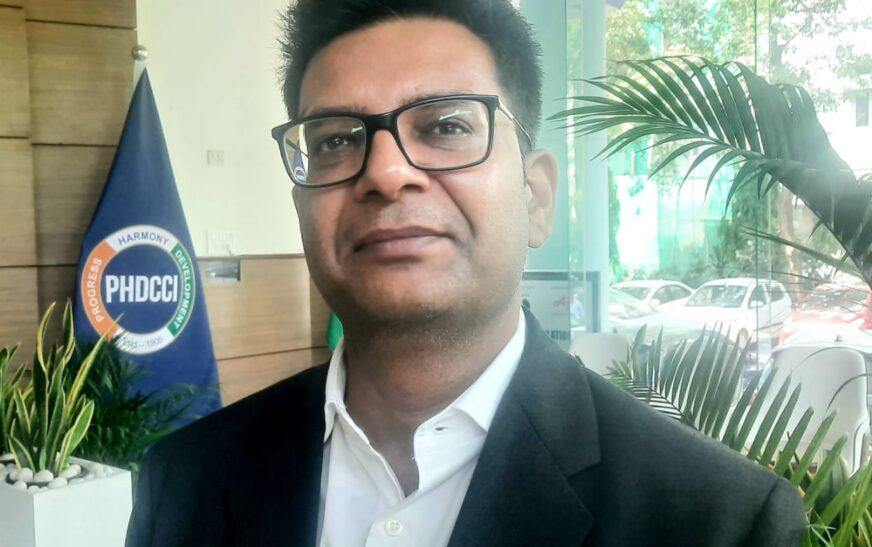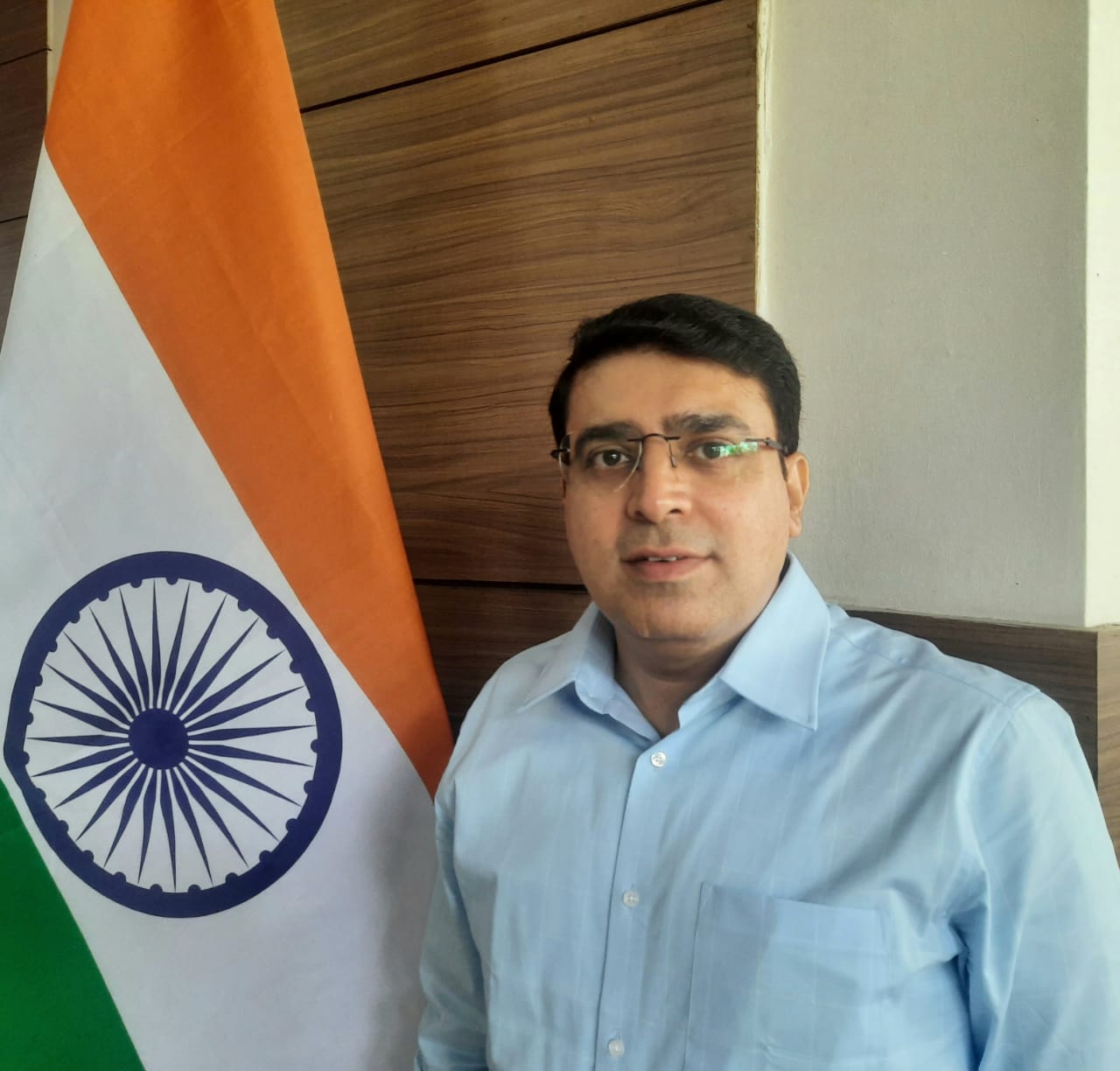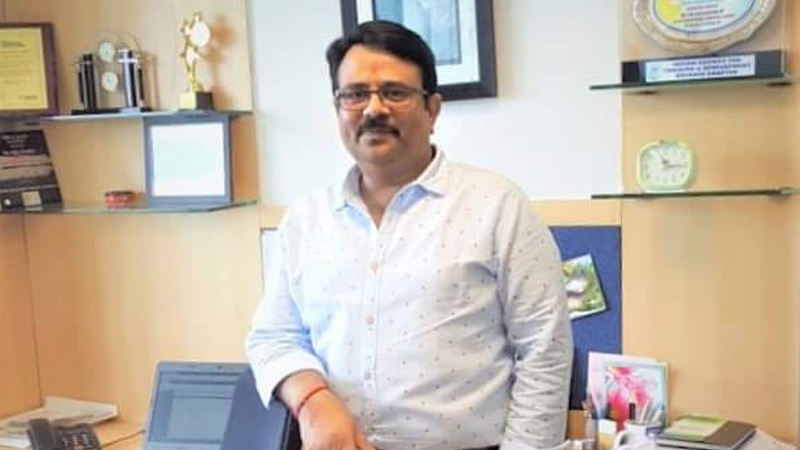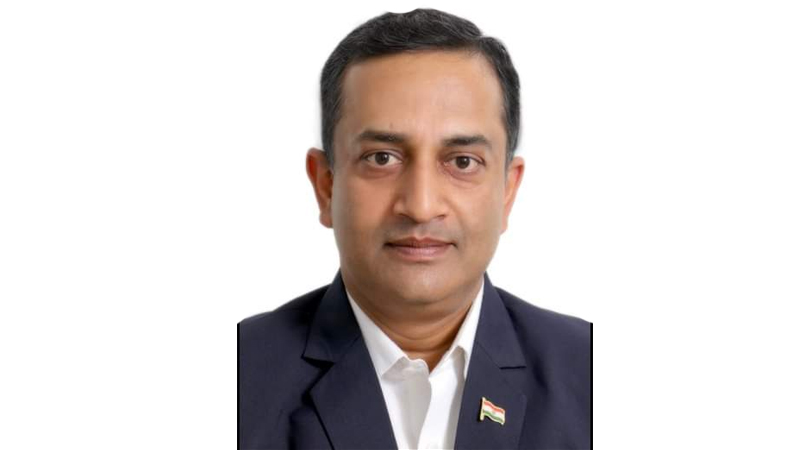Dalmia Polypro Industries leads India’s plastic recycling revolution with a bold commitment to driving the circular economy. Since its inception in 2006, the company has transformed post-consumer PET and polyolefin waste into premium recyclates—rPET, rPP, and rHDPE—powering sectors such as fashion, packaging, and industrial manufacturing. With cutting-edge waste management solutions, Dalmia Polypro empowers brands to comply seamlessly with India’s Extended Producer Responsibility (EPR) mandates under the Plastic Waste Management Rules, 2016. In doing so, it advances multiple UN Sustainable Development Goals, making sustainability both actionable and scalable.
In a candid discussion with The Interview World at the Conference on Decoding the EPR – Challenges, Opportunities, and Way Forward, hosted by the PHD Chamber of Commerce and Industry, Vikash Garg, Assistant Vice President – Operations at Dalmia Polypro Industries Pvt. Ltd., shared deep insights into the evolving EPR landscape in India. He explained how his organization plays a pivotal role in both implementing and ensuring compliance with EPR frameworks. Moreover, he emphasized the urgent need to build organizational awareness around EPR and proposed practical strategies to overcome the widespread information gaps that hinder effective compliance.
Here are the key takeaways from his thought-provoking exchange.
Q: How is the Extended Producer Responsibility (EPR) landscape evolving in India, and what key trends or regulatory shifts are shaping its development?
A: The EPR landscape is evolving—and it’s moving in the right direction. While the initial rules were crafted with foresight, their real-world implications are only now coming into sharper focus. As industries grapple with operational challenges, the government has shown a commendable willingness to listen, understand, and amend policies where necessary.
One of the most pressing challenges today—particularly for large companies—is meeting the circularity targets set for FY 2025–26. These targets focus heavily on integrating recycled and reusable content into production. The issue? The infrastructure and scalable solutions required to meet these benchmarks are still underdeveloped.
Industry stakeholders have voiced their concerns and continue to engage with policymakers. Encouragingly, there is hope that the government will acknowledge these limitations. While an extension of deadlines remains uncertain, it is unlikely that regulators will resort to penalizing Producers, Importers, and Brand Owners (PIBOs) for falling short in the early phases of implementation.
Instead, a phased, collaborative approach is expected—one that nurtures a culture of circularity across the value chain. This transition cannot happen overnight. It demands coordinated efforts between the industry, the government, and the consumers. Building such systemic change takes time, patience, and above all, partnership.
Q: What role does your organization play in advancing EPR in India, and how are you contributing to its implementation and compliance efforts?
A: ReRout, a wholly owned subsidiary of Dalmia Polypro, plays a specialized role within the group’s sustainability ecosystem. While Dalmia Polypro drives plastic waste recycling, ReRout is dedicated to helping obligated entities navigate the complexities of EPR regulations.
Today, many obligated companies lack a deep understanding of EPR compliance. This gap poses significant risks. Unlike earlier times, EPR compliance is no longer a one-person responsibility. It now demands a cross-functional approach. Within any organization, effective compliance requires active participation from multiple departments—packaging, procurement, quality control, warehousing, plant operations, legal, regulatory affairs, and finance.
Each team holds a piece of the compliance puzzle. Every department must stay informed and contribute accurate data, because reporting to the government now involves inputs from across the entire operational chain. Without internal alignment and clearly defined processes, organizations risk misinformation and misreporting—both of which can trigger serious environmental penalties.
That’s where ReRout steps in. The company not only guides clients through the regulatory maze but also helps them build the internal systems needed to ensure accurate, timely, and penalty-free compliance.
Q: Given the limited awareness among organizations and individuals about the modalities and policies of EPR, what measures are needed to enhance understanding and ensure effective implementation?
A: We must actively organize focused sessions tailored to the unique needs of each organization. Stakeholder groups—whether companies, industry associations, or regulatory bodies—should engage specialists like us to design and conduct these sessions. Depending on the complexity, they can range from concise two-hour formats to immersive two-day workshops.
However, no one-size-fits-all approach works. Every company operates with a distinct structure and faces its own set of compliance challenges. That’s why I strongly recommend supplementing generic webinars with customized internal sessions. Before these sessions begin, it’s essential to understand the company’s operational dynamics and pain points. Only then can we design a session that speaks directly to those challenges, ensuring relevance and impact.
Bringing all internal stakeholders—packaging, plant operations, legal, procurement, and compliance—onto a single platform fosters alignment. Each department carries different concerns. Packaging may highlight supply chain constraints. The plant team might raise issues about material traceability. Legal may flag regulatory ambiguities. Unless these voices come together in real time, we cannot design holistic, actionable solutions.
This fragmentation is a common problem. In many companies, stakeholder engagement on EPR or compliance is sporadic—limited to a one-hour meeting each month. That’s simply not enough. Effective compliance requires sustained, structured dialogue. These curated sessions help bridge that communication gap and build a foundation for long-term regulatory readiness.
Q: How can the challenges posed by information scarcity around EPR be effectively addressed to ensure wider awareness and compliance?
A: To address complex challenges, you must bring in external expertise—individuals and organizations that have honed their skills in this domain. These experts can share invaluable insights, offering best practices learned from other industries and companies. By leveraging their knowledge, you gain access to proven solutions that are ready for implementation.
The issue, however, lies in a common misconception. Many see this as a mere checkbox exercise and hesitate to invest appropriately. They are willing to pay substantial fees to large consulting firms, often in the lakhs, yet they balk at paying even a fraction of that to smaller, specialized firms with proven expertise. This creates a significant gap in understanding the true value of tailored, human-driven solutions. Thankfully, more companies are beginning to recognize the importance of this investment.








